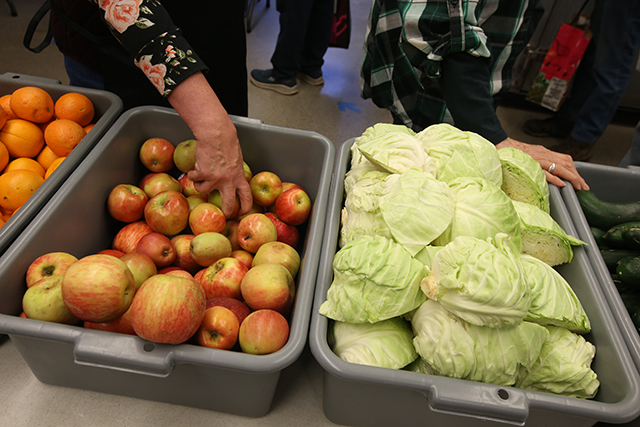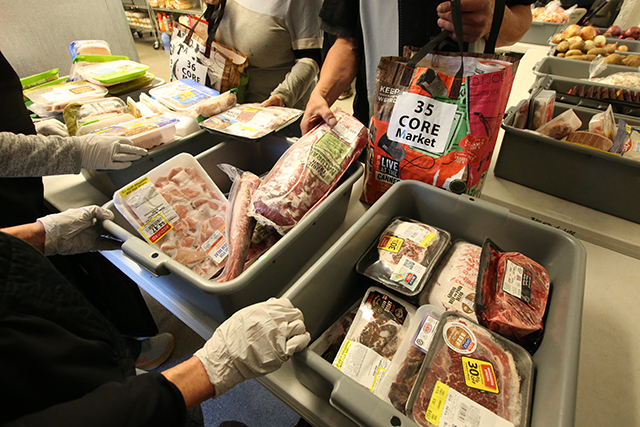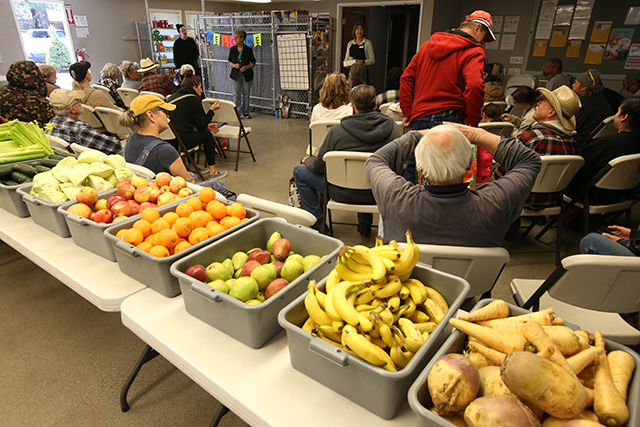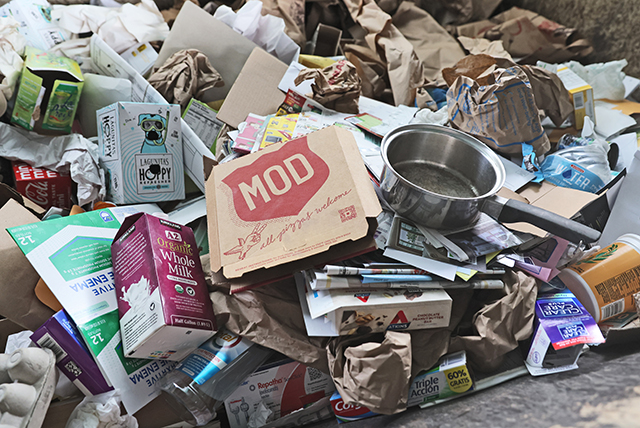Local food pantries rely on community donations as impact of federal food cuts hovers
Published 5:30 am Thursday, April 24, 2025




Demand for food by families experiencing hunger in Central Oregon reached record levels in the first part of 2025, even as cuts to federal programs providing nutrition are underway. But local food pantries say support from the community is sustaining them for now.
NeighborImpact, the regional nonprofit and food bank, said this month that the organization and its community partners have served a record-breaking average of 83,000 people per month in the most recent quarter, a 13.7% increase over the previous quarter’s 73,000.
NeighborImpact is receiving 17% less food from federal sources, including orders of dairy, meat and eggs through July. Executive Director Scott Cooper is worried about what may happen in the future if services such as the Supplemental Nutrition Assistance Program are reduced.
Trending
Local food banks, however, say they aren’t experiencing significant changes and are relying on local donations and contracts with grocery stores to fill in the gaps as best they can.
Sisters’ CORE Market
CORE Market, which stands for community, outreach, resources and emergency shelter, and is part of the Sisters Cold Weather Shelter organization, has been bustling this year, thanks to several new contracts with grocery stores. More people have been coming in because of the increase in available food, said organizers.
“We have other suppliers to fill in the gap, and haven’t noticed a drop,” said food bank manager Lori Blanchard. “We have abundance, the word’s gotten out, and this month we’ve moved 10,000 pounds of food.”
CORE Market, which was previously known as Wellhouse Market, took over from the previous organizer in October. It is located in the same building as the Sisters Cold Weather Shelter, and when the shelter is open, people wander into the market, said Blanchard. It served 750 people last month.
The market receives local donations, food from NeighborImpact, and recently contracted with grocery stores such as Trader Joe’s and Ray’s Food Place. Sisters Bakery also gives donations, she said.
Blanchard said people have told her they are grateful for the market because sometimes they have to decide between paying rent or paying for food.
Trending
“We make do with what we get,” she said. “These local things, they jump-started us.”
The Giving Plate
Ranae Staley, director of The Giving Plate, a nonprofit focusing on food relief in Bend, said that she is spreading a message of hope.
“We haven’t grown because the federal government or Oregon Food Bank or NeighborImpact have empowered us to grow, we have grown because we’ve invested into the relationships and building a community around our work,” she said. “So we are just choosing a message of gratitude for all the years that the community has positioned us to be on the front lines of hunger and has grown in their support with us and that’s why we’ve been able to do the increasing work we’re doing.”
Staley wants to share a positive message because she believes the Giving Plate and the community will move past these difficulties.
“I have heard so many stories of people going through hard things that they never imagined,” she said. “What we’re trying to champion in Bend is, this isn’t your forever. Yeah, life may be really unexpected and hard and maybe hard to see very far past these circumstances, but don’t wrap your identity in the now because there’s always hope for the future if you choose to hold to it.”
Staley said the Giving Plate hasn’t seen any changes yet, and that they are receiving a similar amount of food from NeighborImpact as they have been. From 2023 to 2024, the organization saw a 40% increase in the number of households it served in its grocery program.
“We have had to be more strategic in our purchasing and our use of dollars,” said Staley. “We started doing things like bulk purchasing and palleted food, that actually, we’ve been able to share that resource with NeighborImpact, because they weren’t doing that.”
The Giving Plate has also begun to save money by driving to pick up donated Dave’s Killer Bread in Portland. Other food pantries have also joined in on pallet orders, which Staley is happy to see.
“We’re partnering together to get through this, and we’re not just relying on what the government is going to do or what NeighborImpact has capacity to do,” said Staley. “When this gets to the full-blown trickle out to us, and we’re losing 4,000 pounds a month that we would be losing, does that hit? Yeah, 4,000 pounds of food is a lot, but it’s not going to shut our doors.”
La Pine Community Kitchen and pantry
Jamie Bovik, general manager of the La Pine Community Kitchen, a nonprofit serving Deschutes, Klamath and Lake counties, said demand at the food pantry is up and that organizers have noticed less food coming in.
“We have seen more families come in to line up for our food pantry when we open,” she said. “We are just continuing to ask for donations and we pick up from the stores that give us their food…sometimes we do have to limit those that are coming through to two bags or two boxes instead of allowing them to take what they need.”
Organizers have let community members know about the decrease in food, and Bovik is staying positive.
“I’m not quite there yet that I’m so worried that we’re not going to make it,” she said. “We’re just staying really positive, and we get our orders in every week, and it’s a small drop in our percentage and we’re just staying positive that it’s not going to drop any more and we’re going to get through this and still be able to help our community members.”
NeighborImpact
Cooper, of NeighborImpact, said its 59 community partners have felt the 17% drop in food. The organization is strategizing to increase community donations, and is looking to the Oregon Legislature for assistance. The organization is also looking for opportunities to ask people to be more conservative in what they take from the food bank.
“Many of them had inventory on hand and they’re working through that inventory, but they’re definitely seeing that they’re gonna have to ask people, mostly, just to take smaller shares and smaller portions to get the food to as many people as possible, the food that remains,” he said. “We’re kind of are seeing a plateau right now in demand, it looks like. That’s ahead of whatever may be happening with volatility in the economy and rises in the unemployment rate. We haven’t seen that yet, it’s not on any of the official data, but of course that’s a lagging indicator.”
Members of the Oregon Democratic congressional delegation sent a letter to the secretary of the U.S. Department of Agriculture to reverse a recent freeze on commodity distribution orders.
NeighborImpact encourages community members to reach out to legislators and push for the return of food orders.
“Food is the foundation on which the rest of charitable activity rests,” said Cooper. “You can be homeless as long as you have something to eat, but you can’t have nothing to eat and make do with housing. Food is at the bottom of the security pyramid, it’s the base that holds everything else up.”














